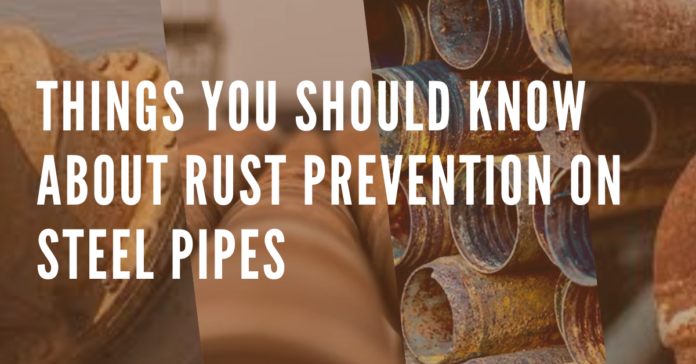Steel pipes are integral to the industrial infrastructure, such as MS Chevron Plate, since they enable the seamless movement of vital liquids and gases needed for daily living. Nevertheless, they have a long-standing adversary in the shape of rust, or corrosion.
Kamran Steel provides the best steel products for construction projects in Lahore. Steel pipes must be kept free from rust in order to preserve their excellent quality and performance. A speedier answer is required to resist rust, regardless of whether they are part of large chemical factories, intricate petroleum pipelines, or municipal water distribution networks. For this reason, learning how to stop these harmful substances from forming is crucial.
Rust prevention on steel pipes is crucial for maintaining their structural integrity and preventing corrosion. Here are some important things you should know about rust prevention on steel pipes:
Coatings:
Paints and Primers: Applying high-quality paints and primers can provide a protective barrier against moisture and corrosive elements.
Epoxy Coatings: Epoxy coatings are known for their corrosion resistance and durability. They form a tough barrier on the steel surface.
Galvanization:
Hot-Dip Galvanization: This process involves immersing the steel pipes in molten zinc, creating a zinc-steel alloy coating. It provides excellent corrosion resistance, especially in harsh environments.
Cathodic Protection:
Sacrificial Anodes: These are metals (like zinc or magnesium) attached to the steel pipes. They corrode preferentially, protecting the steel from rust.
Impressed Current Cathodic Protection: This method uses an external power source to provide a continuous flow of electrical current to the steel, preventing corrosion.
Regular Inspections:
Regular visual inspections can help detect early signs of corrosion or damage. Any issues should be addressed promptly to prevent further deterioration.
Proper Installation:
Ensure that steel pipes are installed correctly, with proper support and adequate spacing to avoid friction and potential damage.
Moisture Control:
Keep the pipes dry and free from standing water whenever possible. Moisture accelerates the corrosion process.
Avoid Harsh Environments:
If possible, avoid exposing steel pipes to harsh environmental conditions, such as extreme temperatures, high humidity, or corrosive chemicals.
Chemical Inhibitors:
Use corrosion inhibitors, either in the form of coatings or additives, to protect steel pipes from corrosive substances in the environment.
Temperature Control:
Extreme temperatures can contribute to corrosion. Proper insulation can help regulate temperatures and protect against thermal cycling.
Appropriate Material Selection:
Choose the right type of steel for the specific application. Some alloys are more corrosion-resistant than others.
Cleaning and Maintenance:
Regularly clean the pipes to remove contaminants that could contribute to corrosion. Implement a maintenance schedule to address any issues promptly.
Education and Training:
Ensure that personnel working with steel pipes are educated on the importance of rust prevention and the proper procedures for handling and maintaining them.
Remember that the effectiveness of rust prevention measures may vary based on factors such as the environment, type of steel, and specific application. It’s essential to tailor the prevention methods to the unique conditions in which the steel pipes are used.

